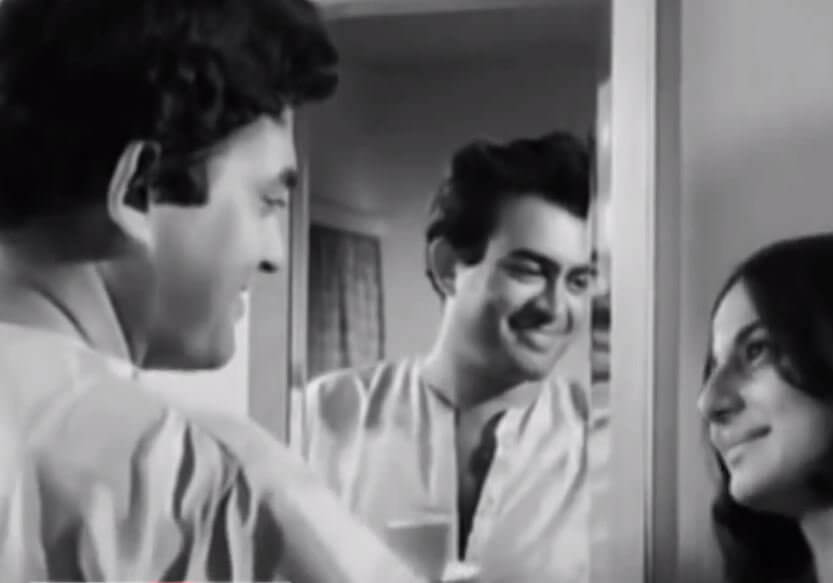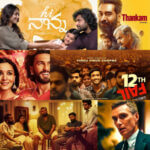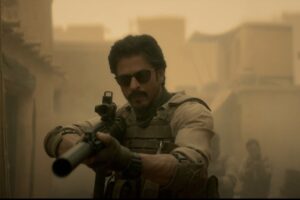-
Critic's Rating - 7.5/107.5/10
7.5/10
Last night i came across this movie on an elite movie portal called ‘MUBI'( mainly for art film aficionados ) and read the synopsis which i didn’t find too engaging enough as it seemed to be all about the hits and misses of a marital life.
I drifted my eyes over the casting of the film and two familiar faces, that of the great Sanjeev Kumar and the bengali matinee queen Tanuja, kind of drew my attention.
As naturally as ever, i was curious to know who the filmmaker was and it was some Basu Bhattacharya. Until yesterday, i knew only of Basu Chatterjee, the filmmaker who recently passed away and had some great ‘middle of the road’ films in his repertoire ( to name a few : Choti si baat, Baaton baaton mein, Kamla ki maut, Sara Akash, Rajnigandha etcetra etcetra ).
Who is this Basu Bhattacharya? ~ i asked my doubtful mind.
To a certain extent, i got confused with two similar sounding names and after reading a few pages on ‘Basu Bhattacharya‘, i got to know that he started his career more or less on the same time in the advent of 70s and made very few films which all had the essence of domestic story telling but with a difference.
So here is his film ‘Anubhav’ (1971) which i am going to talk about today.
Anubhav has a very seemingly predictable plot where the husband ( a corporate honcho ) has a busy work schedule and the wife ( a homemaker ) is not getting to spend quality time with him and years passed by in minimal conversations and time restraints between the couple. Then enters the scene, the ex lover of the wife who brings conflict in the dull narrative.
Having said this, the movie didn’t fall in the trope of treating the hackneyed plot in the bollywood way ( read melodrama, sentimental namby pamby, fight sequences and a happy ending ). Instead, the film opened up new doors of how a film can be told through abject minimalism.

The cinematography by Nando Bhattacharya and the editing by S.Chakravarty put the film on a very high pedestal which was kind of a breakthrough in those times of ‘batch processing’ way of churning out hindi movies, one after the other. The occasional freezing of frames, the wonderful cutting of scenes at the right moment, the slow panning of the camera towards the mirror and showing conversations in reflection, the picturisation of the bathtub song ‘Mera dil jo mera hota’ with dollops of elegance and spunk et al contribute massively to the virtuosic element of the movie.
Another great add-on to the movie is the way it used the sound of a radio in its background or at times the sound of a telephone to accentuate the mood, sometimes as a rhythm breaker and sometimes as a rhythm maker. For instance, the early morning scene where the camera hobnobs with the elements of nature outside and the iconic All India Radio sound gives an ephimeral feel to the scene.
What i loved about the film is not the plot or the storyline but the way it is told, it is shown rather. With the technical finesse and artistic nuances and mention of Brecht plays and all, Bhattacharya‘s ‘Anubhav’ is a much ‘ahead of its time ‘ offering when melodrama and intense loud background score were the usualness.
Another striking feature in the film was its portrayal of Tanuja’s character arc. The way she takes charge of her family by taking powerful decisions single handedly and not acting like a maudlin, unlike other female characters in other movies of that era, is an eye opener in itself. Even in certain scenes where Amar ( Sanjeev Kumar ) admonishes her, Mita ( Tanuja ) deals with his ruggedness so maturedly instead of resorting to tear shedding antics.Even that scene where Amar lashes out at his wife’s ex lover Shashi for the ongoing crisis and the meek Shashi replies ‘aapko mukhse problem nahi hai, kuch aur se hai ‘ gives you enough room for delving deep into the psycho-analaysis of human minds. The last scene is so beautifully enacted by Tanuja that you can’t keep your eyes off her. The last scene where she says to Amar, “main samajh gayi ke tum samajh gaye” and the frame freezes, leaving you in an abyss of thought, thinking of so many outcomes and probablities and then the frame unfreezes and they are diffused in the screen with their silhouettes seen comtemplating about babies in the making.
You may also like : Bhonsle: The dirt, filth, and traces of Ajji in Devashish Makhija’s latest
Music by Kanu Roy is so soothing to your ears and the romance laden sweet mischief of Gita Dutt’s immortal playback voice will keep you enthralled with the song ‘meri jaan mujhe jaan naa kaho’.
Lastly, if you are a bengali, then this hindi film is a must watch for you as the mood of the film is so inherently bengali with a Rabindranath Tagore song tucked in between.
I am in love with this movie and highly recommend this unfathomed classic to the cinephiles out there.
P. S. The film bagged the National Award for second best feature film in 1972.















Add Comment